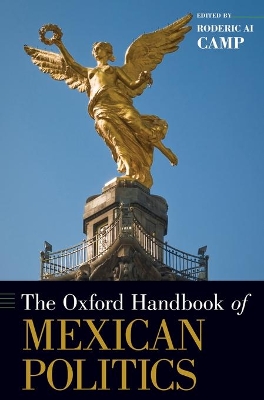Oxford Handbooks
1 total work
Since achieving independence from Spain and establishing its first constitution in 1824, Mexico has experienced numerous political upheavals. The country's long and turbulent journey toward democratic, representative government has been marked by a tension between centralized, autocratic governments (historically depicted as a legacy of colonial institutions) and federalist structures. The years since Mexico's independence have seen a major violent social revolution,
years of authoritarian rule, and, finally, in the past two decades, the introduction of a fair and democratic electoral process.
Over the course of the thirty-one essays in The Oxford Handbook of Mexican Politics some of the world's leading scholars of Mexico will provide a comprehensive view of the remarkable transformation of the nation's political system to a democratic model. In turn they will assess the most influential institutions, actors, policies and issues in its current evolution toward democratic consolidation. Following an introduction by Roderic Ai Camp, sections will explore the current state
of Mexico's political development; transformative political institutions; the changing roles of the military, big business, organized labor, and the national political elite; new political actors including the news media, indigenous movements, women, and drug traffickers; electoral politics; demographics and
political attitudes; and policy issues.
years of authoritarian rule, and, finally, in the past two decades, the introduction of a fair and democratic electoral process.
Over the course of the thirty-one essays in The Oxford Handbook of Mexican Politics some of the world's leading scholars of Mexico will provide a comprehensive view of the remarkable transformation of the nation's political system to a democratic model. In turn they will assess the most influential institutions, actors, policies and issues in its current evolution toward democratic consolidation. Following an introduction by Roderic Ai Camp, sections will explore the current state
of Mexico's political development; transformative political institutions; the changing roles of the military, big business, organized labor, and the national political elite; new political actors including the news media, indigenous movements, women, and drug traffickers; electoral politics; demographics and
political attitudes; and policy issues.
